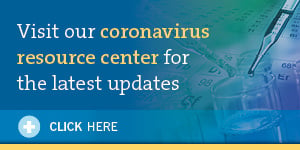Introduction and Regulatory Framework
Health care providers seeking to address staffing shortages in the face of the COVID-19 emergency must consider a number of issues, including state and federal guidance regarding professional licensure, reimbursement, and malpractice considerations. Questions providers should ask include:
- Can out-of-state practitioners provide service in my state?
- Can practitioners who have retired or hold inactive licenses provide services in my state?
- Are there any flexibilities to allow practitioners to provide services in a non-traditional way?
- Can practitioners accelerate payor billing privileges?
- How will these providers be shielded from malpractice liability?
Below, we illustrate some actions that states and the federal government have taken to allow for more flexibility to deploy additional staffing resources efficiently, and otherwise to facilitate the provision of health care services during this time.
Licensure and Billing Considerations
In light of the COVID-19 emergency, a number of states have taken action to allow out-of-state or otherwise unlicensed (inactive or retired) professionals to practice in that state on an expedited basis.
-
Expedited Licensure Processes: All fifty states and the District of Columbia have declared states of emergency in response to the COVID-19 crisis, allowing governors to respond to the emergency with a greater degree of flexibility, often through the temporary suspension or modification of state laws or regulations. Accordingly, a number of states have modified or suspended laws related to the licensing of health care professionals in various ways. Examples include:
- allowing out-of-state practitioners to practice temporarily in state (e.g., California, Florida, New York, Massachusetts);1
- expediting or waiving credentialing procedures (e.g., Massachusetts, California);2
- expediting renewals or reactivations of retired and inactive practitioners’ licenses (e.g., Texas, Massachusetts, Pennsylvania, Illinois);3
- accelerating reciprocal licensure (e.g., Massachusetts);4 and
- delaying licensure renewals for the duration of the COVID-19 public health emergency (e.g., Massachusetts, Pennsylvania).5
- Lastly, with respect to telehealth, many states are allowing practitioners to provide telehealth services across state lines without a state-specific license (e.g., Florida, Pennsylvania, Massachusetts).6
-
Non-Traditional Practice Arrangements. Notably, some states have implemented executive and emergency orders that deploy either non-traditional medical providers or traditional medical providers in non-traditional capacities. For example:
- some states are allowing students to provide health care services (e.g., Texas, New York);7 supervision and reassignment requirements for physician assistants have been suspended (e.g., Pennsylvania, Massachusetts);8
- some states have waived nurse-to-patient ratio requirements (e.g., Massachusetts);9
- others have waived certain collaboration requirements for nurses (e.g., Pennsylvania);10
- some have suspended rules regarding the number of institutions with which physicians can be affiliated (e.g., Pennsylvania);11 and
- some states are also allowing expanded scopes of practice for certain health care professionals, such as certified nursing assistants and home health aides (e.g., California).12
-
Waived Background Check Requirements. State licensure requirements generally require health care professionals to undergo fingerprint-based criminal background checks prior to practicing. Due to the length of time these background checks can take, as well as logistical considerations that may prevent a health care professional from obtaining fingerprint cards or electronic fingerprint services (as most states have imposed varying degrees of lockdown orders), some states are temporarily waiving or modifying certain statutory and regulatory background check requirements. For example, the governor of Illinois issued an executive order suspending a prohibition on hiring certified nursing assistants (“CNAs”) who are inactive on the state’s Health Care Worker Registry, and also extended the probationary period during which a CNA can work without obtaining fingerprint background check clearance from three to six months.13 Similarly, the Georgia Department of Community Health has delayed until the state’s state of emergency is lifted the fingerprinting component of the state’s background check processes for health care professionals, administrators, and owners.14
-
Accelerated Billing Privileges. The Centers for Medicare & Medicaid Services (“CMS”) and state Medicaid authorities generally require health care providers and professionals to complete a lengthy enrollment process before becoming eligible to participate in, and receive reimbursement from, the Medicare and Medicaid programs. In response to the COVID-19 emergency, however, CMS has authorized a number of blanket waivers, known as 1135 waivers (due to their authorization under Section 1135 of the Social Security Act), with the aim of allowing health care providers maximum flexibility to “combat and contain” the spread of COVID-19.15 A number of these waivers ease enrollment requirements to allow providers to become eligible for reimbursement on an expedited basis. Specifically, CMS is:
- expediting Medicare enrollment applications for new providers;
- temporarily waiving certain fingerprint-based background check requirements (similar to state efforts described above); and
- establishing a toll-free hotline for non-certified Part B suppliers, physicians and non-physician practitioners to enroll and receive temporary Medicare billing privileges.
Many state Medicaid programs have requested and received use of the same waivers.16 Similarly, some commercial payors have expedited credentialing efforts to allow health care professionals practicing under temporary licenses to become eligible to bill for services rendered to patients they are treating during this time.17
-
Other CMS Waivers. In addition to accelerated billing privileges, CMS has implemented a number of additional waivers aimed at increasing flexibility for institutional providers and individual practitioners during this time. These include:
- expanded telehealth coverage;
- permission to bill for virtual check-ins and remote monitoring for new, as well as existing, patients;
- relaxed physician supervision requirements;
- increased flexibility in billing “incident to” auxiliary services for non-physician practitioners; and
- waiver of Medicare requirements that mandate that hospitalized inpatients must be under the care of a physician.18
CMS also is waiving additional requirements that apply to qualifications for practitioners at critical access hospitals, although any state qualification requirements continue to apply unless waived by the state.19 Measures such as these will allow institutional providers more flexibility in expanding patient capacities in existing facilities and in staffing temporary field hospitals and healthcare facilities.
Hospital Action
Before a physician may practice in a hospital, the hospital must undertake a typically lengthy review process of the physician’s qualifications, through processes known as credentialing and privileging. Many hospitals utilize reciprocal credentialing and credentialing-by-proxy agreements with one another, in order to rely on each other’s credentialing and privileging of providers seeking to practice at distant sites via telemedicine. Those arrangements remain available to assist out-of-state providers to become able to treat patients via telehealth services on an expedited basis. However, for any physicians seeking privileges to practice at a different hospital in-person, traditional credentialing requirements still apply. Some states, however, have suspended these requirements in response to the COVID-19 emergency. The Texas Board of Medicine, for example, is allowing physicians who are credentialed and privileged at out-of-state hospitals to practice medicine at any Texas-licensed hospital during the emergency.20 The Massachusetts Department of Public Health has mandated that all Massachusetts-licensed hospitals implement expedited credentialing processes for independent practitioners seeking to practice at the hospital during the COVID-19 emergency, and also has ordered that all licensed clinical staff working at any Massachusetts-licensed health care facility be authorized to work at any other Massachusetts-licensed facility, subject to certain requirements.21 The governor of California has authorized the state’s Department of Public Health to implement similar measures.22 CMS is also waiving some of its requirements related to physician credentialing, to allow for physicians whose privileges will expire to continue practicing at the hospital and for new physicians to be able to practice in the hospital before full medical staff or governing body review and approval.23
Liability and Malpractice Considerations
Given the COVID-19 public health emergency, the federal government, and some states, have, in certain circumstances, provided liability immunity to health care providers and others in the biomedical industry.
As one example, on March 17, 2020, the Secretary of Health & Human Services issued a declaration under the Public Readiness and Emergency Preparedness (“PREP”) Act in connection with the COVID-19 pandemic (the “Declaration”). The Declaration provides immunity from tort liability, excluding willful misconduct causing death or serious physical injury, to certain individuals and entities involved in the manufacture, distribution, administration, or use of certain “Covered Countermeasures.”24 Persons eligible for immunity include manufacturers, distributors, program planners, and “qualified persons,” each of which is given a specific definition under the PREP Act.25 “Qualified persons” include, among others, licensed health professionals authorized to prescribe, administer, or dispense “Covered Countermeasures.” In the context of the Declaration, “Covered Countermeasures” include drugs, devices, or biological products that are, among other things, intended to treat, diagnose, cure, prevent, or mitigate COVID-19 or the transmission of SARS-CoV-2 or a virus mutating therefrom. These Covered Countermeasures must have been approved, licensed, or cleared by the U.S. Food & Drug Administration (“FDA”), subject to an investigational use exemption, or subject to an emergency use authorization from FDA. Importantly, the Declaration limits the liability immunity afforded under the PREP Act to activities involving Covered Countermeasures that relate to (a) present or future federal contracts and other federal agreements or (b) activities authorized in accordance with the public health and medical response of the “authority having jurisdiction” to prescribe, administer, deliver, distribute or dispense the Covered Countermeasures following a “declaration of an emergency.” This Declaration is retroactively effective as of February 4, 2020.
In addition, the CARES Act, the broad relief bill signed into law on March 27, 2020, limits the liability of health care professionals acting in good faith during the COVID-19 emergency response so long as the services the health care professional provides are: (i) provided in a volunteer capacity; (ii) in response to COVID-19; and (iii) within the scope of the health care professional’s license, subject to limited exceptions.26
In New York, Governor Cuomo granted immunity to “physicians, physician assistants, specialist assistants, nurse practitioners, licensed registered professional nurses, licensed practical nurses, and those students in programs to become licensed health care providers in New York for any claims that may arise out of providing medical services in support of the State’s response to the COVID-19 outbreak,” other than in the case of gross negligence, as well as immunity for any failure to comply with any recordkeeping requirement.27 In Illinois, Governor Pritzker granted immunity to health care professionals and health care volunteers from civil liability “for any injury or death alleged to have been caused by any [non-willful] act or omission . . . in the course of rendering assistance to the State by providing services, assistance, or support in response to the COVID-10 outbreak.”28 Additionally, in New Jersey, Attorney General Grewal announced that the state will waive proof of medical malpractice insurance in order to facilitate its temporary licensure-by-reciprocity process.29 Lastly, some private malpractice insurers have eased coverage restrictions on telehealth and staffing issues for retired providers or those crossing state lines, for example.30
* * *
In sum, a number of federal and state provisions are available to assist health care providers who are seeking to expand staffing capacity on an expedited basis in response to the COVID-19 emergency. For more detailed information, please contact your Ropes & Gray attorney.
- California Proclamation of State of Emergency (Mar. 4, 2020), available at https://www.gov.ca.gov/wp-content/uploads/2020/03/3.4.20-Coronavirus-SOE-Proclamation.pdf; State of Florida – Office of the Governor Executive Order Number 20-52, available at: https://www.flgov.com/wp-content/uploads/orders/2020/EO_20-52.pdf.; State of Florida Department of Health – Emergency Order No. 20-002 (Mar. 9, 2020), available at http://www.flhealthsource.gov/pdf/emergencyorder-20-002.pdf; New York Executive Order No. 202.5: Continuing Temporary Suspension and Modification of Laws Related to the Disaster Emergency (Mar. 18, 2020), available at https://www.governor.ny.gov/news/no-2025-continuing-temporary-suspension-and-modification-laws-relating-disaster-emergency; Order of the Commissioner of Public Health Implementing Emergency Credentialing and Licensed Staff Transfer Procedures for Medical Facilities in the Commonwealth (Mar. 17, 2020), available at https://www.mass.gov/doc/order-of-the-commissioner-of-public-health-implementing-emergency-credentialing-and-licensed/download.
- Order of the Commissioner of Public Health Implementing Emergency Credentialing and Licensed Staff Transfer Procedures for Medical Facilities in the Commonwealth (Mar. 17, 2020), available at https://www.mass.gov/doc/order-of-the-commissioner-of-public-health-implementing-emergency-credentialing-and-licensed/download; Executive Order N-39-20 (Mar. 30, 2020), https://www.gov.ca.gov/wp-content/uploads/2020/03/3.30.20-EO-N-39-20.pdf.
- Governor Abbott Waives Certain Licensing Renewal Regulations, Fees for Nurses (Mar. 25, 2020), available at https://gov.texas.gov/news/post/governor-abbott-waives-certain-licensing-renewal-regulations-fees-for-nurses; Governor Abbott Removes Licensing Barriers for Advance Practice Registered Nurses (Mar. 28, 2020), available at https://gov.texas.gov/news/post/governor-abbott-removes-licensing-barriers-for-advance-practice-registered-nurses; Order Expanding Access to Physician Services (Mar. 17, 2020), available at https://www.mass.gov/doc/march-17-2020-expand-access-to-physician-services-order/download; Important Information Regarding Physician Licensure during the State of Emergency, available at https://www.mass.gov/service-details/important-information-regarding-physician-licensure-during-the-state-of-emergency; Pennsylvania Waives Certain Licensing Requirements to Allow Retired Health Care Professionals to Practice During Coronavirus Emergency (Mar. 25, 2020), available at https://www.dos.pa.gov/Documents/2020-03-25-Retirees-Suspension-Waiver.pdf; Governor Abbott Takes Action to Expand Nursing Workforce (Mar. 21, 2020), available at https://gov.texas.gov/news/post/governor-abbott-takes-action-to-expand-nursing-workforce; Executive Order 2020-09: to Expand Telehealth Services and Protect Health Care Providers in Response to COVID-19 (Mar. 19, 2020), https://www2.illinois.gov/Pages/Executive-Orders/ExecutiveOrder2020-09.aspx.
- Commonwealth of Massachusetts Board of Registration in Nursing – Licensure Policy 10-03, available at https://www.mass.gov/doc/expedited-processing-of-reciprocal-license-applications-in-the-event-of-a-declared-public/download.
- Order Expanding Access to Physician Services (Mar. 17, 2020), available at https://www.mass.gov/doc/march-17-2020-expand-access-to-physician-services-order/download; Order Extending the Registration of Certain Licensed Professionals (Mar. 18, 2020), available at https://www.mass.gov/doc/march-18-2020-professional-licensure-order/download; State Board of Nursing: Additional Temporary Waivers (Mar. 27, 2020), available at https://www.dos.pa.gov/Documents/2020-03-27-Summary-of-Additional-Nursing-Waivers.pdf.
- State of Florida Department of Health – Emergency Order No. 20-002 (Mar. 16, 2020), available at http://www.flhealthsource.gov/pdf/emergencyorder-20-002.pdf; Pennsylvania Authorized Licensed Health Care Professionals to Provide Services via Telemedicine During Coronavirus Emergency (Mar. 18, 2020), available at https://www.dos.pa.gov/Documents/2020-03-18-Telemedicine-Summary.pdf; Order Extending the Registration of Certain Licensed Health Care Professionals (Mar. 17, 2020), available at https://www.mhalink.org/MHADocs/Communications/COVID19/20-03-17C19licenseextend.pdf; Order Expanding Access to Physician Services (Mar. 17, 2020), available at https://www.mass.gov/doc/march-17-2020-expand-access-to-physician-services-order/download.
- Governor Abbott Takes Action to Expand Nursing Workforce (Mar. 21, 2020), available at: https://gov.texas.gov/news/post/governor-abbott-takes-action-to-expand-nursing-workforce; New York Executive Order No. 202.10: Continuing Temporary Suspension and Modification of Laws Relating to the Disaster Emergency (Mar. 23, 2020), available at: https://www.governor.ny.gov/news/no-20210-continuing-temporary-suspension-and-modification-laws-relating-disaster-emergency.
- Some License Requirements for Qualified Physicians Assistants are Suspended During Coronavirus Emergency (Mar. 22, 2020), available at https://www.dos.pa.gov/Documents/2020-03-22-Physcian-Assistant-Waiver.pdf; Order of the Commissioner of Public Health Regarding the Flexible Reassignment of Physician Assistants (Mar. 18, 2020), available at https://www.mass.gov/doc/march-18-2020-physician-assistant-order/download.
- Order of the Commissioner of Public Health Exempting Hospitals from the Requirements of M.G.L. c.111 section 231 (Mar. 24, 2020), available at https://www.mass.gov/doc/nursing-staff-order/download.
- State Board of Nursing: Additional Temporary Waivers (Mar. 27, 2020), available at https://www.dos.pa.gov/Documents/2020-03-27-Summary-of-Additional-Nursing-Waivers.pdf.
- Medical Doctors’ Two-Facility Institutional License Limit Suspended during Coronavirus Emergency (Mar. 20, 2020), available at https://www.dos.pa.gov/Documents/2020-03-20-Doctors-Suspension-of-Institutional-License-Requirements.pdf.
- California Executive Order N-39-20 (Mar. 30, 2020), available at https://www.gov.ca.gov/wp-content/uploads/2020/03/3.30.20-EO-N-39-20-text.pdf.
- Illinois Executive Order 2020-2012 (Mar. 24, 2020), available at https://www2.illinois.gov/Pages/Executive-Orders/ExecutiveOrder2020-12.aspx.
- Important Notice on Fingerprint Background Checks, Georgia Department of Community Health (Mar. 25, 2020), available at https://dch.georgia.gov/announcement/2020-03-25/important-notice-fingerprint-background-checks.
- COVID-19 Emergency Declaration Health Care Providers Fact Sheet, Ctrs. for Medicare & Medicaid Srvs. (Mar. 13, 2020), available at https://www.cms.gov/files/document/covid19-emergency-declaration-health-care-providers-fact-sheet.pdf.
- See Coronavirus Waivers & Flexibilities, Ctrs. for Medicare & Medicaid Srvs., https://www.cms.gov/about-cms/emergency-preparedness-response-operations/current-emergencies/coronavirus-waivers (last visited Apr. 1, 2020).
- See, e.g., Expedited Credentialing of Providers with a Temporary License Due to COVID-19, BlueCross BlueShield of North Carolina (Mar. 19, 2020), https://www.bluecrossnc.com/provider-news/expedited-credentialing-providers-temporary-license-due-covid-19.
- See https://www.cms.gov/files/document/covid-19-physicians-and-practitioners.pdf.
- See https://www.cms.gov/files/document/covid-teaching-hospitals.pdf
- See Licensing Overview: COVID-19 Disaster Licensing for Out-of-State Providers, Texas Bd. of Med. http://www.tmb.state.tx.us/page/licensing (last visited Apr. 1, 2020).
- Order of the Commissioner of Public Health Implementing Emergency Credentialing and Licensed Staff Training Procedures for Medical Facilities in the Commonwealth (Mar. 17, 2020), available at https://www.mass.gov/doc/order-of-the-commissioner-of-public-health-implementing-emergency-credentialing-and-licensed/download.
- California Executive Order N-39-20 (Mar. 30, 2020), available at https://www.gov.ca.gov/wp-content/uploads/2020/03/3.30.20-EO-N-39-20-text.pdf.
- See https://www.cms.gov/files/document/covid-teaching-hospitals.pdf.
- 85 FR 15198 (Mar. 17, 2020), available at https://www.federalregister.gov/documents/2020/03/17/2020-05484/declaration-under-the-public-readiness-and-emergency-preparedness-act-for-medical-countermeasures.
- 42 U.S.C. § 247d–6d(i).
- CARES Act, S. 3548, 116th Cong. (2020).
- New York Executive Order 202.10, available at: https://www.governor.ny.gov/news/no-20210-continuing-temporary-suspension-and-modification-laws-relating-disaster-emergency.
- Executive Order 2020-19 (Apr. 1, 2020), https://www2.illinois.gov/Pages/Executive-Orders/ExecutiveOrder2020-19.aspx.
- AG Grewal: NJ Temporarily Waives Rules for Out-of-State Healthcare Providers to Offer Services to NJ Residents During COVID-19 Emergency (Mar. 20, 2020), https://www.nj.gov/oag/newsreleases20/pr20200320a.html.
- See e.g., Retired Physician Volunteers Receive No-Cost Malpractice Coverage during COVID-19 Pandemic, The Doctors Co. (Mar. 25, 2020), https://www.thedoctors.com/about-the-doctors-company/newsroom/press-releases/2020/retired-physician-volunteers-receive-no-cost-malpractice-coverage-during-covid-19-pandemic/; FAQ: Coverage Questions, MedPro Group, https://www.medprocovid-19.com/ (last updated Mar. 26, 2020).
Stay Up To Date with Ropes & Gray
Ropes & Gray attorneys provide timely analysis on legal developments, court decisions and changes in legislation and regulations.
Stay in the loop with all things Ropes & Gray, and find out more about our people, culture, initiatives and everything that’s happening.
We regularly notify our clients and contacts of significant legal developments, news, webinars and teleconferences that affect their industries.





